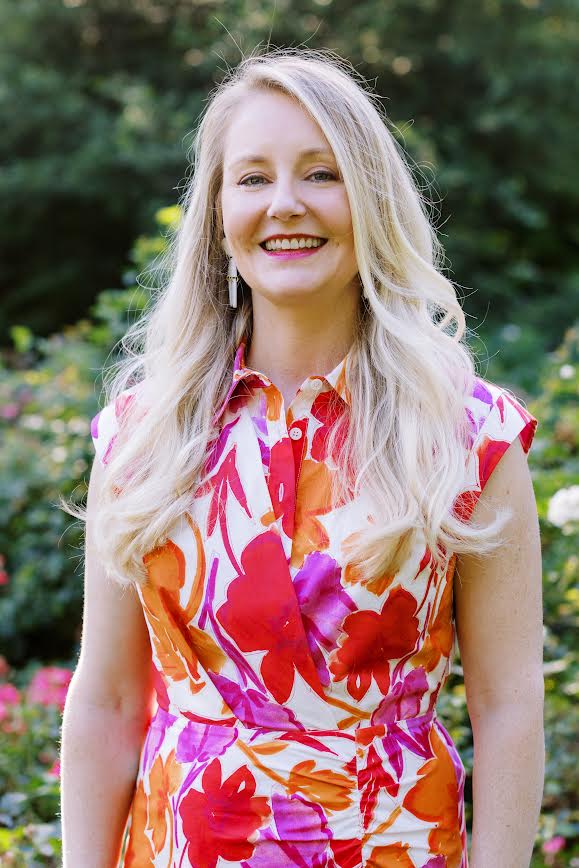
If you’re like me, having teachable children sounds especially good right now. First, many of us are finding ourselves in the new position of being our children’s actual teacher for the first time. With schools closed because of COVID–19, I’m wearing more hats (sometimes awkwardly) as I homeschool my two older boys with a one-year-old too. Second, while this situation offers the silver lining of increased bonding time as a family, it also has its challenges. Tensions easily flare in confined environments right when working together peaceably has never felt more important. If we can arise from this trying chapter as better parents with happier, more ordered households, that’s a victory.
Here are 5 tips that can help.
Photo Credit: © Getty Images/FamVeld

1. Fill Your Cup
Now more than ever, we need to be sure that our cups are filled as we tend to others. With job loss, food shortage, no school, remote working, and social isolation, among other concerns, we as parents are juggling a lot. It’s important to recognize the overwhelming nature of it all and take inventory on what we need to press on.
Airplane instructions are a useful reminder, especially in times of crisis: We need to put our own oxygen masks on before attempting to put them on our children. For instance, God can help counter our worry and fear when we take time to listen. Exercise, sunshine, fresh air, and a good night’s sleep can reset frazzled nerves. Recognizing our God-given limitations is a gift when we respond with compassion to ourselves and submission to God’s wisdom. Teachable children have parents who take time to connect with the Lord and tend to their own needs so that they can give their best to others.
Photo Credit: © Getty Images/digitalskillet

2. Show Your Child Love
A parent’s love is a powerful grounding force, especially when times are uncertain. While none of us is perfect, if our children know that we love them unconditionally beyond a shadow of a doubt, we help fulfill their primary need. It’s no mistake that the gospel story starts with love. John 3:16 reads, “For God so loved the world that he gave his one and only Son, that whoever believes in him shall not perish but have eternal life” (emphasis mine). The Bible teaches us that love is the foundation for pivotal relationships, like faith and parenthood.
As a mother of three, I marvel at how each of my sons feels love differently. One needs physical reassurance in the form of several daily hugs. One desires time to talk with me and share his thoughts. The baby feels secure when I respond to his promptings. Teachable children have parents who take the time to tune into and address their emotional needs, which paves the way for our influence.
Photo Credit: © GettyImages/fizkes

3. Actively Order Your Child's World
I’ve interviewed Dr. Leonard Sax, family doctor and New York Times bestselling author, twice for my faith and parenting TV show, Chaos to Calm. I appreciate his perspective because his well-researched, scientific conclusions often support faith principles. For instance, preserving the strength of the family unit is something he advocates for, and something he believes is in peril. In our interview on his book The Collapse of Parenting, Dr. Sax documents the modern-day erosion of parental authority; parents often function as friends rather than authority figures. As a result, depression and anxiety are increasing in children while a peer-driven culture of disrespect among youth is flourishing. According to Dr. Sax, if we want teachable children, we need to feel comfortable exercising our authority in a healthy and appropriate way. Healthy parental authority creates boundaries and follows through. It orders a child’s world through the protective lens of our love and wisdom, much like the word of God does for us.
Ordering our children’s world is crucial since daily schedules have likely changed dramatically due to COVID–19. Establishing a new pattern with regularity for home life can be invaluable for children so that they know what to expect and can thrive. For instance, a healthy boundary would be to require time outside in the sunshine, daily exercise, and family chores before children enjoy free time like video games. (Dr. Sax would also monitor what video games are played!)
Photo Credit: © Getty Images/Maskot

4. Allow Your Child to Test His or Her Wings
Another trend that’s been documented is that modern parents are often hesitant to allow their children to fail. Rather than children getting a bad grade, arriving late for a commitment, or showing up unprepared, parents are quick to compensate and step in on their behalf. While our motives are good, the results are less so. Educator Jessica Lahey, author of the New York Times bestselling book The Gift of Failure, argues that failure is a valuable teaching tool on my show. Failure functions as an important bridge to future success when people learn from it. It’s best to allow our children to fail when they are younger and the stakes are lower, versus when they are older and the stakes are higher, she says. A teachable child has the space to learn valuable lessons firsthand.
A caveat follows, however. While this kind of learning is advantageous during normal seasons, children need more from us during this time of flux. While both parents and educators are trying to find the right balance, it’s best to err on the side of increased support right now. Parents can find appropriate, perhaps non-school related ways, to help children practice this principle. For example, imagine your child wants to build a rubber band-powered car. He’ll learn more through experimentation and failed attempts than he would from an immediate plan from you on how to build it.
Photo Credit: © Getty Images/Choreograph

5. Plant Seeds of Faith
Teachable children are sensitive to God’s prodding as well as to parental influence. Not only does faith support our work as parents, but it’s our most important subject matter. Equipping children with a faith relationship is a gift that will bless them their whole lives. Story is an easy way to bridge a faith relationship with children. Jesus often teaches through story in the Bible—it’s an effective way we learn. Further, children’s book illustrations can captivate children and draw them in.
Sally Lloyd-Jones, author of the Jesus Storybook Bible that’s sold over three million copies, speaks about the power of story on my show. Sally says that storytime is not about parents having the perfect teaching points or answers; rather, it’s about planting seeds. A powerful story is something that will naturally grow inside of a child and take root on its own. All that’s needed from parents is setting aside the time to read together—something that’s easier with less scheduled activities right now! Our commitment to engage faith acknowledges that parents don’t just raise children, we shape souls.
Proverbs 22:6 states, “Start children off on the way they should go, and even when they are old they will not turn from it.” While we cannot control our children’s choices later in life, this passage reflects the sacred responsibility we have now that can impact the future. With these five tips in mind, we can put our best foot forward for God and our families.
Photo Credit: © Unsplash/Priscilla du Preez
Want more interaction with the women of iBelieve? Join our fans, writers, and editors at the iBelieve Facebook group, Together in Faith, for more videos, stories, testimonies, prayers and more. Visit here to join the community!
Rev. Noelle Kirchner, MDiv., believes we don’t have to live with full schedules and thin souls. A busy mom of three boys, she is passionate about making faith fresh and relevant. Noelle is a graduate of Princeton Seminary and an ordained Presbyterian minister who has served in churches for over ten years. She has written for places like the TODAY Show Parenting Team, Huff Post Parents, The Laundry Moms, and (in)courage. Her faith and family cable television show, Chaos to Calm, features parenting hot topics and has hosted three New York Times bestselling authors and one Emmy Award-winning journalist. Watch her episodes or sermons, connect with her on social media, and follow her blog by visiting her website, or receive her free devotional e-book.
Originally published Tuesday, 12 May 2020.









